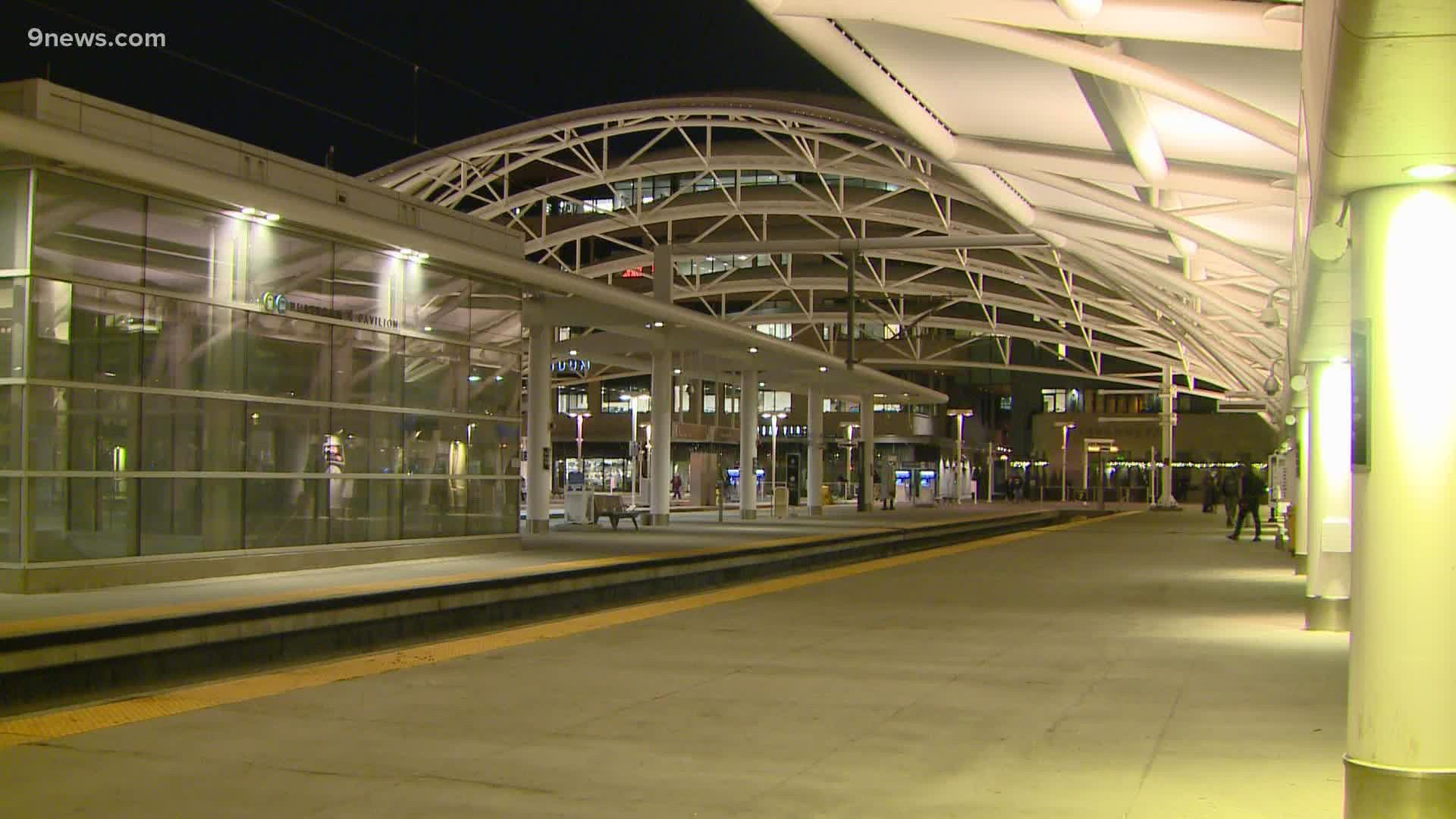DENVER — EDITOR'S NOTE: A previous version of this story gave an incorrect description of House Bill 19-1263. The story has been updated with the correct information.
Union Station is dealing with several problems, including drug activity, and it's capturing the attention of city leaders.
Some describe the activity as "lawless" at a place that’s so popular.
“Denver’s Union Station is beautiful. It is a landmark. It's an area that is designed to bring people together,” Denver Police Chief Paul Pazen said.
It's where many come together to go both near and far.
“I, as a user of Denver Union Station and a resident in the greater area, I have experienced some of the unwelcomed activity,” Pazen said.
But there are pressing issues that are starting to raise eyebrows of Denver's top cop.
“Substance abuse disorder certainly is playing a major factor in this. We also see some high levels of mental health acuity and some challenges that folks are facing in that area,” Pazen said.
In turn, he said, police are providing the proper resources for those who need them.
“Individuals that are experiencing homelessness, individuals that are addicted to substances, and individuals that have some mental health challenges that are turning our outreach folks down. This is compounding the issues, exacerbating the challenges that we face at this transit hub,” Pazen said.
According to Denver Police, 120 arrests were made at Union Station in October, and 147 were made in November.
“We are seeing increases in this as a result of zero to no consequence for people’s actions and behaviors. And until the consequences changes, we’re likely to continue to address this problem at Union Station, but tomorrow it will be in a different neighborhood,” Pazen said.
In May 2019, Gov. Jared Polis signed House Bill 19-1263 into law, changing the penalty for possession of certain drugs like fentanyl and meth. Pazen believes this is another reason they are seeing unwanted activity at Union Station.
“Part of that is defelonization, decriminalization. It makes it very difficult to hold people accountable. And when we continue to see the same folks and arrest the same people over and over again, it's only exacerbating the safety concern that our community has,” Pazen said.
The 2019 law did not decriminalize drugs, but made some possession offenses misdemeanors rather than felonies.
For now, RTD has started to address the problems by increasing police presence with Denver Police and RTD’s police.
“The people of Denver deserve to be safe, first and foremost. The people of Denver deserve to be safe, whether they live here, whether they work here, or whether they are traveling through,” Pazen said.
RTD has also closed restrooms on the bus concourse level.
“I made the decision to close the restrooms last week," Regional Transportation District General Manager and CEO Debra Johnson said. "Realizing that there is unwelcomed activity there. Wanted to ensure that we could get into the restrooms. Discern whether there were any residual impacts from the usage of illegal substances and things alike."
Those are part of the short-term plans. In the long run, they are hoping to secure this popular area a little more by requiring tickets for access.
“Recognizing that RTD's main charge is delivering transit services, and we want to make lives better through connections. So that’s why it’s incumbent upon us to work collectively to ensure that we’re creating a clean and safe environment, and that’s my intent here.” Johnson said.
SUGGESTED VIDEOS: Latest from 9NEWS

